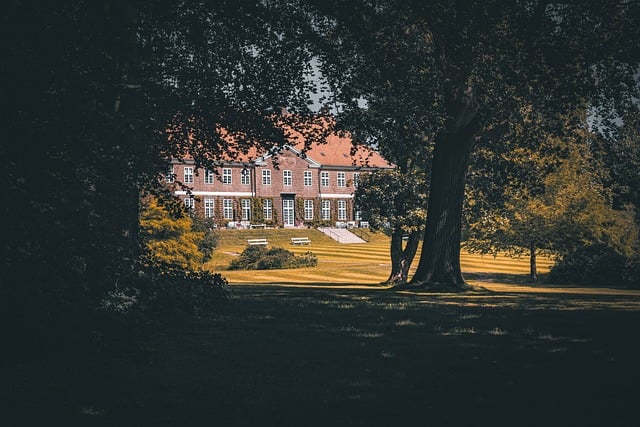The cost of an Executive Condominium (EC) in Singapore is influenced by a variety of factors including location, age, and market trends. Younger ECs are typically more affordable due to their eligibility criteria and the resale price limiter (RPL) which ensures affordability for middle-income families, with the cap gradually increasing over 25 years from the development's completion. As ECs mature, they become reclassified as private condominiums after a decade, potentially appreciating in value due to increased demand and favorable location factors. Investors and buyers must consider economic conditions, government policies like LTV ratios and cooling measures, and global economic factors such as interest rates when evaluating the potential cost of an EC and its long-term investment viability in Singapore's property market. Understanding these dynamics is crucial for anyone looking to purchase or invest in an EC, as it can significantly impact the financial commitment and returns over time.
Exploring the intricacies of Singapore’s real estate sector, this article sheds light on the Executive Condominium (EC) landscape. From their origins as a housing solution straddling the line between public and private residences to their current market standing, ECs have evolved significantly. Prospective buyers must weigh the cost of an Executive Condo in Singapore against various budgetary constraints and economic factors that influence its pricing. This comprehensive guide dissects the multifaceted impact of location on EC valuation, examines the maturation stages that affect their worth, and delves into the array of mortgage options available to finance your EC purchase. Additionally, it offers insights into the resale market dynamics for existing ECs and projects future trends in EC pricing. Whether you’re a first-time homebuyer or an investor, understanding these elements is crucial to making informed decisions within the vibrant Singaporean property market.
- Understanding the Executive Condominium (EC) Landscape in Singapore
- The Evolution of ECs: From Public to Private Housing
- Budget Considerations for Prospective EC Buyers
- Factors Influencing the Cost of Executive Condos
- Location and Its Impact on EC Pricing in Singapore
- Tiered Maturation Stages and Their Effect on EC Values
- Financing Your Executive Condo: Mortgage Options and Considerations
- Resale Market Dynamics for Existing ECs
- Future Projections of EC Prices in the Singaporan Real Estate Market
Understanding the Executive Condominium (EC) Landscape in Singapore
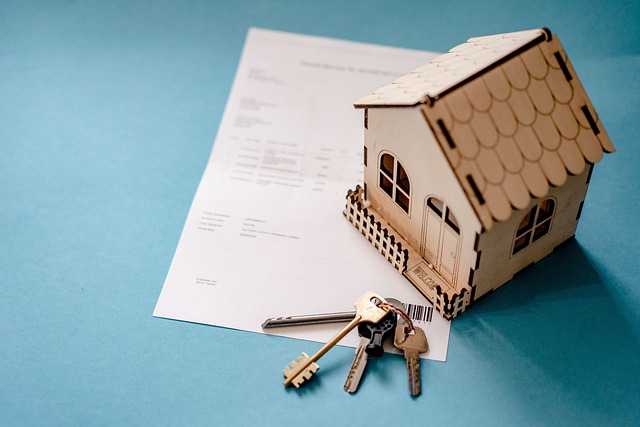
In Singapore, the Executive Condominium (EC) landscape presents a unique housing option for both singles and families who aspire to own a property with the possibility of upgrading to a public housing flat in the future. Unlike traditional condominiums, ECs are hybrid housing designed for middle-income households. They offer the luxuries of a condo, such as facilities like swimming pools and gyms, while also providing the benefits of a leasehold property. The cost of an Executive Condo in Singapore is influenced by various factors, including its location, development quality, and market demand. Prospective buyers should consider the affordability aspect of ECs, which are more cost-effective compared to private condominiums, making them an attractive proposition for those looking to enter the property market without a substantial financial outlay.
The Singaporean government regulates the pricing and availability of ECs to ensure they remain accessible to middle-income families. The Cost Venture, a mixed development in Tampines Ave 10, is a recent example showcasing the diverse offerings within an EC. It reflects the evolving needs of residents with its combination of retail spaces and residential units, underscoring the adaptability of ECs to cater to changing lifestyles and preferences. For those considering an investment in the EC landscape, it’s advisable to monitor the trends in pricing and the types of units being sold. This will provide a clearer picture of the cost expectations and help in making an informed decision that aligns with one’s long-term housing goals in Singapore.
The Evolution of ECs: From Public to Private Housing

The Executive Condominiums (ECs) in Singapore have undergone a significant transformation over the years, evolving from public to private housing while maintaining their role as an important component of the nation’s diverse housing landscape. Initially introduced as a hybrid form of public and private housing to cater to the needs of upgrading flat owners, ECs have become increasingly popular among young couples and families seeking a step up from public housing estates. Over time, the cost of purchasing an Executive Condo in Singapore has been influenced by various factors, including market demand, the availability of subsidies for eligible applicants, and broader economic conditions. The price points for ECs are typically positioned between those of HDB resale flats and private condominiums, offering a more affordable option without compromising on quality and amenities. This middle ground has made ECs a coveted choice, reflecting their growing acceptance as part of the private housing market. As the government adjusts policies to meet the changing needs of residents, the evolution of ECs continues to shape the housing landscape in Singapore, offering a dynamic and adaptive living solution that remains accessible and affordable for many homebuyers. The cost of an Executive Condo in Singapore is a testament to this balance, providing value and opportunities for upward mobility while contributing to the overall housing mix in the region.
Budget Considerations for Prospective EC Buyers

When considering the purchase of an Executive Condominium (EC) in Singapore, budget is a critical factor for prospective buyers. The cost of an EC can vary significantly based on several factors, including location, development phase, and the overall property market conditions. Prospective buyers should first understand the eligibility criteria for purchasing an EC, as it caters to both singles and families, with varying financial requirements. For instance, individuals or families interested in purchasing a resale EC are eligible to apply for an EC loan from financial institutions directly, without the need for a Housing & Development Board (HDB) housing loan. This can potentially offer more competitive interest rates, which should be factored into the overall budget consideration.
Moreover, potential buyers must consider the additional costs associated with purchasing an EC, such as legal fees, stamp duties, and maintenance fees. The Average Price (APE) of ECs in mature estates like Sengkang, Tampines, and Bishan is generally higher than those in non-mature estates. This price differential is a significant consideration for buyers who prioritize amenities and transportation options over cost. Additionally, the potential for capital appreciation is an important aspect to consider when budgeting for an EC. As these properties are upgraded to become private condominiums after the five-year minimum occupation period, their value may increase, offering a return on investment that should be weighed against the initial purchase costs and ongoing expenses. Understanding the total cost of ownership, including all additional fees and potential future valuation, will equip buyers with the information needed to make an informed decision regarding the cost of an EC in Singapore.
Factors Influencing the Cost of Executive Condos
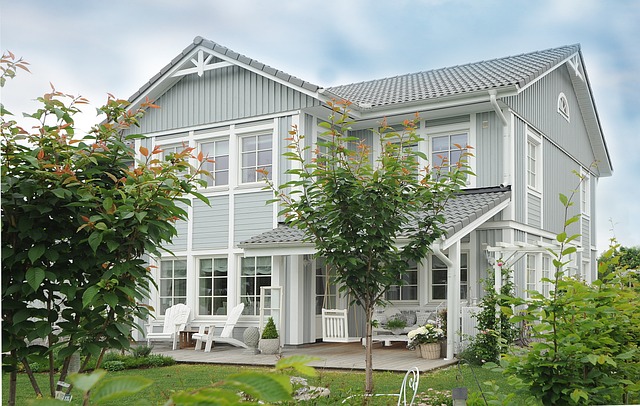
Location and Its Impact on EC Pricing in Singapore

The location of an Executive Condominium (EC) in Singapore plays a pivotal role in determining its pricing, influencing the cost of an EC significantly. Proximity to key amenities such as shopping centers, schools, and public transportation networks can drive up prices due to high demand for convenience and lifestyle-oriented living. For instance, ECs situated within mature estates like Sengkang or Tampines often command higher prices than those in less developed areas. These mature estacles offer a comprehensive range of facilities and services, making them attractive to families and young professionals alike. On the other hand, newer towns may have lower pricing due to the availability of larger units and the development of amenities over time. The Singapore government’s efforts to enhance living standards across the island also influence EC pricing. Initiatives like the revitalization of regional centers and the introduction of new transportation links can increase land values and, consequently, the cost of ECs in those areas. Investors and homeowners considering an EC in Singapore must weigh the trade-offs between desirable locations with higher costs and more affordable options in emerging neighborhoods. The cost of an Executive Condo in Singapore, therefore, is a function of its location, the surrounding infrastructure, and the broader economic and demographic trends shaping real estate demand in the region.
Tiered Maturation Stages and Their Effect on EC Values

The maturation stages of an Executive Condominium (EC) in Singapore are a critical factor influencing its value over time. As these properties are designed to transition from public to private housing after a set period, typically 10 years, their market value is subject to change as they progress through these tiered maturation phases. Initially, ECs cater to younger couples or families who may not meet the income ceilings for public housing but can afford low-cost private housing. Over time, as the EC ages and reaches the halfway point of its maturity, it gains in value due to increased stability and a more established community presence. This interim period often sees an appreciation in property value as the development becomes more attractive to upgraders from public to private housing.
Upon reaching full maturity after 10 years, the EC is reclassified as a private condominium, which typically commands higher prices. The cost of an Executive Condo in Singapore at this stage can be significantly higher than when it was first launched. Factors such as location, the state of the broader property market, and the condition and facilities of the EC all contribute to its valuation. Investors keen on capital appreciation often target these mature ECs, recognizing their potential for value increase. Prospective buyers should consider these maturation stages when assessing the long-term investment viability of an EC, as the cost of an Executive Condo in Singapore can vary considerably throughout its lifecycle.
Financing Your Executive Condo: Mortgage Options and Considerations
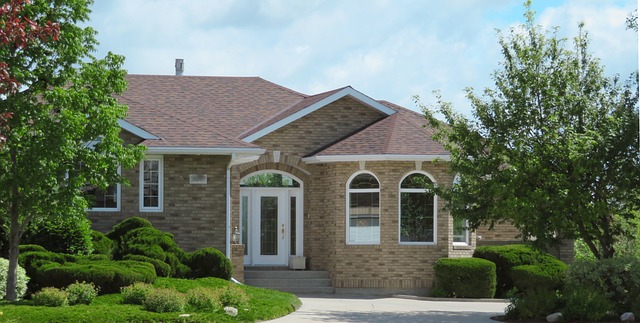
Navigating the cost of an Executive Condominium (EC) in Singapore requires a comprehensive understanding of the available mortgage options and key considerations for financing. Prospective owners have several mortgage choices, including bank loans, HDB loans, and a combination of both. The cost of an EC can be substantial, and it’s pivotal to evaluate the terms and conditions associated with each financing pathway. For instance, bank loans often come with competitive interest rates and flexible repayment schemes, while HDB loans offer favorable terms for Singaporean citizens. It’s advisable to compare the Total Debt Servicing Ratio (TDSR) and Mortgage Servicing Ratio (MSR) limits to ascertain affordable monthly installments post-purchase. Additionally, potential buyers should consider the future resale criteria of ECs, as they revert to private condominium status after five years, which could influence resale values and thus, the long-term financial planning of the investment. Understanding the nuances of each mortgage option is crucial for tailoring a financing plan that aligns with personal financial capabilities and goals when considering the cost of an Executive Condo in Singapore.
Resale Market Dynamics for Existing ECs
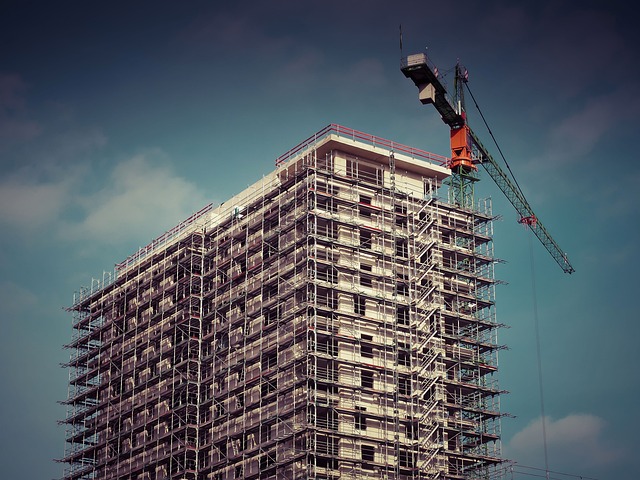
The resale market for Executive Condominiums (ECs) in Singapore presents a dynamic and evolving landscape for both current residents looking to upgrade and new buyers entering the property market. As of the latest data, the cost of an EC in Singapore can vary significantly based on factors such as location, age of the development, and market conditions. Prospective buyers interested in the resale market should consider the age-related tiered resale price limiter (RPL) which dictates the maximum allowable resale price of an EC upon its 10th anniversary. This mechanism is designed to progressively lower the price cap over a 25-year period, ensuring that ECs remain accessible and affordable for middle-income families.
Understanding the intricacies of the resale market requires a close examination of historical trends in pricing, demand, and supply patterns. Typically, ECs located in established estates with amenities and good accessibility tend to be more sought after, which can influence their resale prices. Additionally, as these properties transition from being part of the public housing scheme to private ownership, they offer a unique proposition for buyers who seek the benefits of a condominium lifestyle within a controlled resale market. Prospective buyers should also take note of the eligibility criteria for purchasing an EC on the resale market, which includes the income ceiling stipulated by the Singapore government. By staying abreast of these factors and trends, investors and homeowners alike can navigate the resale market with greater confidence when considering the cost of an Executive Condo in Singapore.
Future Projections of EC Prices in the Singaporan Real Estate Market

The future projections for the prices of Executive Condos (ECs) in Singapore’s real estate market are subject to a variety of factors, including economic conditions, population growth, and government policies. Analysts often examine past trends and current data to forecast potential price movements. Key drivers such as the demand for housing among eligible applicants—Singapore citizens or permanent residents who can own an EC but must eventually sell the unit if they acquire another residential property—play a significant role in determining the cost of an Executive Condo in Singapore. As the population of eligible buyers grows, the demand for these affordable alternatives to public housing typically increases, potentially driving up prices.
Moreover, government interventions, such as changes to loan-to-value (LTV) ratios or the introduction of cooling measures, can have a substantial impact on the property market. These policies are designed to maintain a stable and sustainable housing market, balancing demand with supply. Investors and potential homeowners should keep an eye on policy adjustments that could affect the affordability and desirability of ECs. In addition, global economic trends, such as interest rate fluctuations and inflation rates, can influence the cost of borrowing, affecting purchasing power and investment decisions in the property market. Therefore, while past price trajectories can offer insights into future trends, a holistic view considering all these factors is crucial for understanding the potential path of EC prices in Singapore’s dynamic real estate landscape.
In conclusion, the Executive Condominium (EC) landscape in Singapore presents a nuanced and evolving segment within the real estate market, with its unique position as a housing bridge between HDBs and private condominiums. Prospective buyers must consider the multifaceted cost of an EC in Singapore, which is influenced by factors such as location, maturation stage, and broader market dynamics. Budgeting for an EC requires a comprehensive understanding of these variables and the associated financing options available. As the EC market continues to mature and adapt to economic shifts, keeping abreast of future projections becomes crucial for informed decision-making. For those considering an investment in this vibrant sector, it is imperative to engage with current and forecasted trends to navigate the cost of an Executive Condo effectively within Singapore’s dynamic property landscape.
